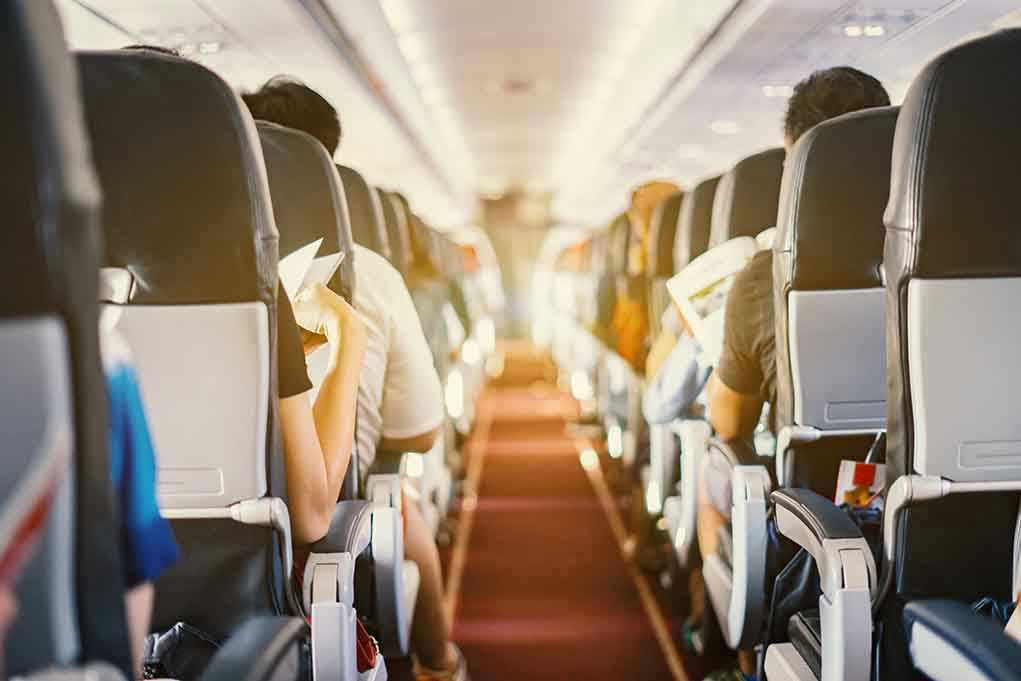
“What are you going to do about it?”—the six words that sparked a heated debate about airline etiquette and passenger rights.
Story Snapshot
- A passenger discovers someone sitting in their assigned seat, leading to a tense confrontation.
- The incident, captured and shared online, quickly goes viral, highlighting issues of entitlement and civility.
- This event is part of a larger pattern of seat disputes in increasingly crowded flights.
- Airlines face pressure to reinforce seat assignment policies amid public scrutiny.
Airline Etiquette in the Spotlight
Air travel has always been fraught with challenges, but in recent years, disputes over seat assignments have become particularly contentious. The incident where a man occupied another passenger’s seat and responded with the audacious question, “What are you going to do about it?” perfectly encapsulates the tensions that arise in these situations. This scenario is not just about a seat; it’s about respect, entitlement, and the social contracts we engage in when stepping onto a plane.
Social media amplifies these conflicts, creating a platform for passengers to air grievances and for the public to weigh in on what constitutes proper conduct. The viral nature of such stories reveals a collective frustration with the perceived lack of courtesy and the challenges of enforcing airline policies in a cramped environment. This particular incident has reignited discussions about the responsibilities of airlines and the expectations placed on passengers.
The Rise of Seat Disputes
Airlines have increasingly monetized seat selection, adding a layer of complexity to the boarding process. Passengers now often pay a premium for specific seats, raising the stakes of any seat-related dispute. This trend, coupled with more crowded flights, has made seat assignments more contentious than ever. A simple seat swap can escalate into a larger conflict, as evidenced by the viral confrontation. It reflects broader issues of entitlement and the erosion of social norms in public spaces.
Incidents like these are not isolated. They are symptomatic of a broader dissatisfaction with the air travel experience, where personal space is limited and tensions run high. Previous situations have seen passengers refusing to swap seats for families or being removed from flights for not adhering to seat assignments. These stories, once shared online, often spark debates about fairness and the appropriate way to handle such disputes.
Stakeholders and Social Media’s Role
Passengers expect airlines to uphold seat assignments, while staff are tasked with resolving disputes efficiently. The man occupying the seat may have been testing boundaries or seeking a more comfortable spot. However, the real power lies with social media users who can amplify these incidents and influence public perception. This dynamic underscores the role of social media in shaping airline policies and passenger behavior.
The incident has not prompted immediate policy changes from airlines, but it has put pressure on them to reiterate the importance of seat assignments. Some airlines have issued statements reminding passengers of the rules, while industry experts emphasize the need for clear communication and enforcement. The ongoing public debate keeps the story alive, serving as a reminder of the complexities of modern air travel etiquette.
Long-Term Implications
In the short term, this incident has heightened awareness of seat assignment etiquette and prompted a surge in online discussion. In the long term, it may lead airlines to tighten enforcement policies and clarify expectations for passengers. The travel industry may also face increased scrutiny over passenger experiences, driving changes in how disputes are managed. As these stories continue to capture public interest, they reflect broader societal debates about civility and the balance between individual rights and collective norms.
The ripple effects of such incidents extend beyond the immediate parties involved. They impact the airline industry, which must navigate the reputational risks associated with negative passenger experiences. For passengers, these stories reinforce the importance of respecting rules and the potential consequences of failing to do so. Ultimately, they serve as a microcosm of the challenges inherent in maintaining civility in shared spaces.




